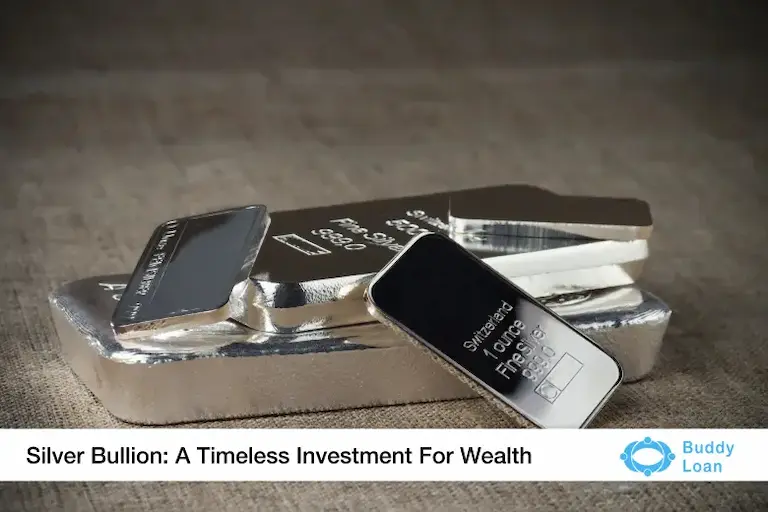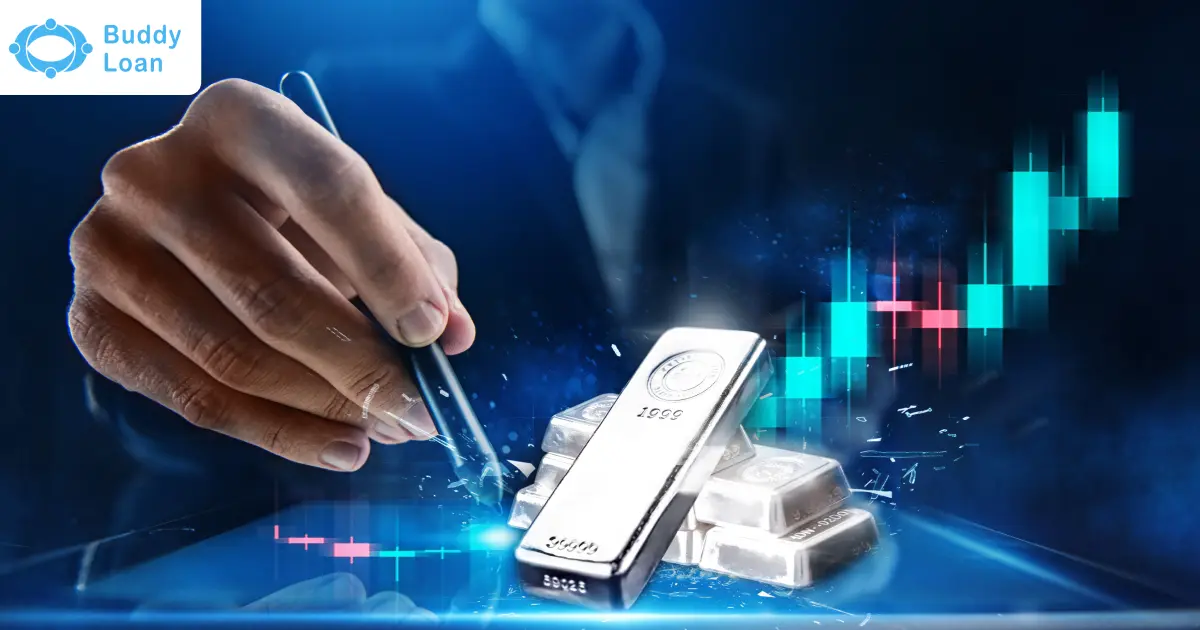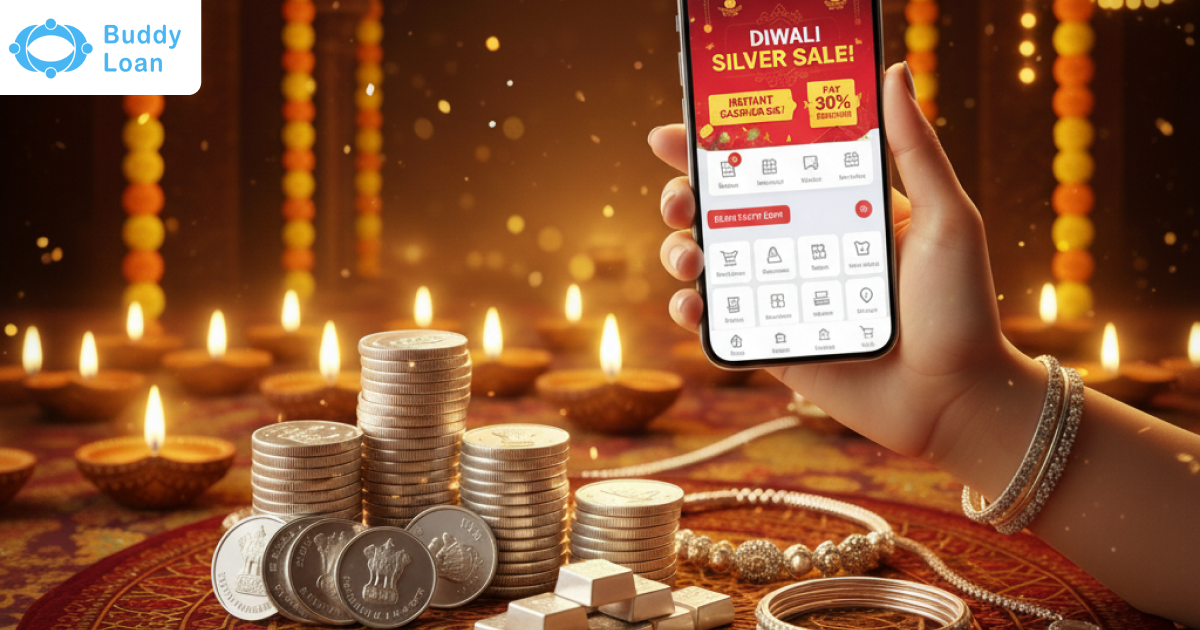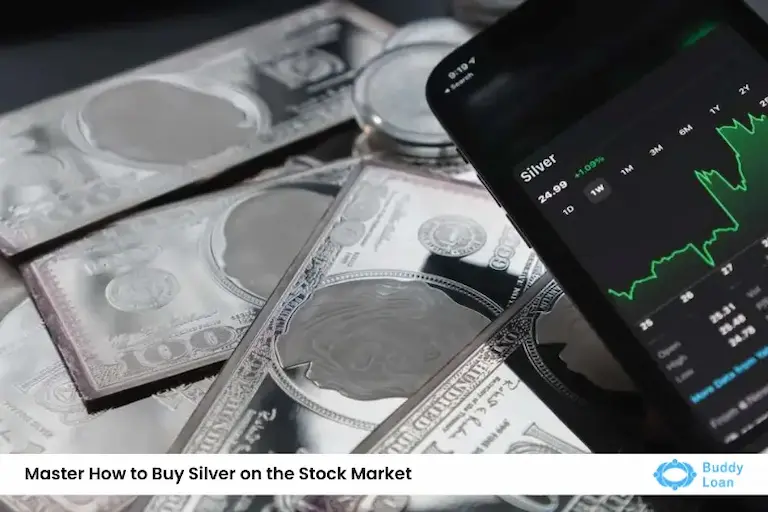Silver bullion has been a popular investment for centuries, offering a real way to store wealth and hedge against inflation. In recent years, silver has gained popularity as an investment, particularly in uncertain economic times. This blog covers the basics of silver bullion, including how to buy and invest it, the types of silver bullion available, and the benefits of investing in silver. Whether you’re interested in buying a 50 gm silver bar, 500 grams of silver, or preowned silver coins, this guide provides essential insights to get you started.
| In the 19th century, many countries operated under a bimetallic standard, where both gold and silver were used as monetary metals. This system aimed to stabilize currency values and facilitate trade. |
Price of Silver
Silver prices change frequently due to market demand and economic factors. Knowing the current rates is essential for investors looking to buy or sell silver. Below are the latest silver rates to help you make informed decisions.
| Weight | Price in INR |
| 1 gram | ₹93 |
| 10 grams | ₹930 |
| 100 grams | ₹9,300 |
| 1 kilogram | ₹93,000 |
Note: These rates are subject to change based on market fluctuations. For the most accurate and uptodate information, it’s advisable to consult local dealers or financial news sources
Understanding Silver Bullion
Silver bullion refers to pure and physical silver in the form of bars, coins, or rounds. Bullion is valued based on its weight and purity rather than its face value, making it a straightforward way to invest in silver.
Types of Investors
Understanding the different types of investors can help you identify your own investment style and make informed decisions. Here is a table to show different types of investors:
| Investor Type | Description |
| Traditional Investors | Culturally inclined buyers, especially during festivals |
| Retirees & Conservative Investors | Older individuals seeking stability |
| Young Investors | Millennials exploring alternative investments |
| Rural & SemiUrban Populations | Prefer tangible assets for savings |
| Small Business Owners & Farmers | Entrepreneurs and farmers |
| InflationProtected Investors | Those seeking to protect purchasing power |
| HNIs & Collectors | Wealthier individuals and collectors |
0
Bad
Check your Credit Score for Free
Your credit score is updated monthly and gives you insight into your creditworthiness. Take control of your financial future today.
Benefits of Silver Bullion
Now that we have looked at the types of investors, let us get to know the benefits of the Silver bullion:
Here are the main benefits of investing in silver bullion:
Protection Against Inflation
Silver acts as a protection against inflation because its value tends to remain stable or increase when currency values fall. Unlike paper money, which loses purchasing power during inflation, silver retains its intrinsic value, helping you preserve your wealth during economic uncertainty.
Physical Asset
Unlike digital investments like stocks or cryptocurrencies, silver bullion is a physical asset. You can hold it, store it, and use it as a physical representation of your wealth. Its physical nature makes it less susceptible to cyber risks or system failures, giving you added peace of mind.
Affordable
Silver is much more affordable than gold, making it accessible to a wide range of investors. Whether you’re a beginner with a small budget or a seasoned investor looking for diversification, silver provides an entry point into the world of precious metals without requiring significant capital.
Industrial Demand
Silver is not just a precious metal but also an industrial one. It’s widely used in manufacturing electronics, solar panels, medical equipment, and other industries. This steady industrial demand ensures that silver remains a valuable commodity, further supporting its price and longterm investment potential.
Liquidity
Silver bullion is highly liquid, meaning it’s easy to buy and sell. Whether you prefer local dealers, online marketplaces, or banks, there are plenty of platforms to trade silver. This ease of transaction ensures you can quickly convert your investment into cash whenever needed.
Diversification
Adding silver bullion to your investment portfolio can help balance risks. It typically performs well when other asset classes, like stocks, are struggling. By diversifying with silver, you reduce your overall investment risk and create a more stable portfolio.
Safe Haven
Silver, like gold, is considered a safehaven asset. During times of political turmoil, economic downturns, or financial crises, investors flock to silver for stability. Its consistent value makes it a reliable option when other investments become unpredictable.
Factors Affecting Silver Prices
The price of Silver is influenced by a variety of factors, ranging from market demand to economic conditions, making it essential for the investors to understand these dynamics:
Industrial Demand: Silver is used in electronics, solar panels, and medical applications, which impacts its price.
Investment Demand: As investors seek a hedge against inflation, demand can drive prices up.
Economic Conditions: During economic uncertainty, silver prices tend to rise.
Geopolitical Factors: Global events, such as trade tensions, can influence silver prices.
Pro Tips to Invest In Silver
Investing in silver can be a rewarding venture, but knowing the right strategies and tips can help you maximize your returns and minimize risks. Here are few tips to invest in silver:
Buying Silver Bullion
1. Online Bullion Dealers: Platforms like APMEX and JM Bullion allow you to buy silver bars online or purchase silver coins with ease.
2. Local Coin Shops: Offer inperson purchases and sometimes allow you to inspect products before buying.
3. Banks and Financial Institutions: Some banks sell silver bullion directly, although options may vary.
Storing Silver Bullion
1. Home Storage: Keep it in a safe at home for easy access, though this may require insurance.
2. Safe Deposit Boxes: Available at banks, offering secure storage, though access may be limited to banking hours.
3. Bullion Storage Companies: Specialized facilities that store precious metals securely, often with insurance included.
Selling Silver Bullion
1. Online Dealers: Many online platforms offer buyback programs, making it easy to sell your silver.
2. Local Coin Shops: A quick option for selling bullion in person.
3. Banks and Financial Institutions: Some banks buy back silver, although policies vary.
Steps To Invest In Silver
Investing in Silver involves a series of important steps that can guide you from initial research to making your purchase, ensuring a wellinformes investment decision:
1. Research the Market: Check the current silver price and trends. For example, visit websites like Goodreturns or Kitco for live silver rates to decide when to buy.
2. Choose a Trusted Seller: Decide whether to buy from an online platform like APMEX or JM Bullion, or a local jeweler or bank like HDFC Bank or Tanishq. Make sure the seller is reputable and offers genuine silver with proper certification.
3. Select Your Silver Type: Decide between silver bars, coins, or rounds. For example, you can choose 50 gm silver bars for smaller investments or 1 kg silver bars if you’re looking to invest more.
4. Make the Purchase: Buy the silver and keep the purchase receipt as proof of authenticity. For instance, if you buy from an online dealer, they’ll usually provide a digital receipt, while a local jeweler will give you a printed one.
5. Store Your Silver Safely: Choose a secure storage option. For example:
- Home Safe: Install a reliable safe at home.
- Bank Safe Deposit Box: Banks like SBI or ICICI Bank offer safe deposit boxes.
- Professional Bullion Storage: Some companies, like Brinks or MMTCPAMP, provide secure storage specifically for precious metals.
Eligibility
Before investing in silver, it’s important to understand the eligibility requirements that may affect your ability to purchase and hold silver bullion
Age Requirement: Must be 18 years or older.
Budget: Silver is accessible, but ensure you have enough funds for both the purchase and potential storage costs.
Required Documents
To successfully invest in silver, you’ll need to prepare certain documents that verify your identity and eligibility, ensuring a smooth transaction process.
1. ID Proof: Examples include a passport, Aadhaar card, or driver’s license.
2. Address Proof: Acceptable documents include utility bills, rental agreements, or any government issued document showing your address.
3. Purchase Receipt: Always keep the purchase receipt. For instance, if you buy from APMEX, they’ll send a digital receipt which is helpful if you plan to sell the silver later.
Conclusion
Investing in silver bullion is a practical way to secure a tangible asset that offers protection against inflation and economic uncertainty. Silver provides a reliable opportunity to diversify your portfolio, whether you prefer silver bars, coins, or rounds. With a variety of options like secondary market silver and refurbished silver rounds, there’s something to suit every budget and investment goal. To get started, explore trusted online platforms or visit local dealers to find the right silver investments for you. By purchasing from reputable sources and storing securely, silver can become a valuable and profitable addition to your investment strategy.
Frequently Asked Questions
Q. What is silver bullion?
A. Silver bullion is investment-grade silver in the form of bars, coins, or rounds, typically with a high purity level of 99.9% or more.
Q. What forms does silver bullion come in?
A. Silver bullion is available as bars, coins, and rounds, which vary in size and weight for investment flexibility.
Q. How is the price of silver bullion determined?
A. Silver bullion prices are based on the current market spot price of silver, plus a premium that covers production, distribution, and dealer markup.
Q. What is the spot price of silver?
A. The spot price of silver is the current market price per ounce and reflects its value on global commodities exchanges.
Q. What are the benefits of investing in silver bullion?
A. Silver bullion provides a hedge against inflation, offers portfolio diversification, and is a tangible asset with intrinsic value.
Q. How do I store silver bullion safely?
A. Silver bullion can be stored in a secure home safe, a bank’s safety deposit box, or specialized vault storage services.
Q. Where can I buy silver bullion?
A. Silver bullion can be purchased from reputable dealers, online marketplaces, and authorized mints.
Q. What is the difference between silver bullion and silver jewellery?
A. Silver bullion is valued for its pure metal content, whereas silver jewellery has added design and craftsmanship value, often leading to higher costs but not necessarily investment-grade purity.
Q. What is a fair markup when buying silver bullion?
A. A fair markup typically ranges from 5% to 15% over the spot price, depending on the form (bars or coins) and the dealer.
Q. How do I know if silver bullion is genuine?
A. Authentic silver bullion often includes assay certificates, comes from trusted dealers, and can be verified by weight, size, and specific gravity tests.




